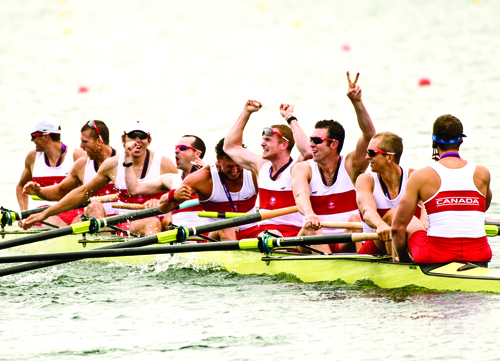When the Olympics come to a screeching halt, athletes struggle to find their place in life
Aileen Ormoc
Sports Editor

When the closing ceremonies come to an end, it can be a daunting task for most athletes to adjust to their regular routine.
Without the camaraderie of fellow teammates and support from larger-than-life crowds, Olympic athletes can begin to suffer from a form of depression dubbed “post-Olympic stress disorder.”
Frances Flint, coordinator of the athletic therapy certificate program and specialist in the psychology of injury at York, says over the last few Olympics, post-Olympic stress disorder has been a local term used to describe the depression that comes with the end of the Games.
Flint says the disorder can occur among both successful and unsuccessful athletes in the Olympics.
“I think it can be both,” she says. “I think it’s the person that’s totally invested, totally committed, and has not been taught how to handle those changes that are going to occur.”
Athletes who typically go through this disorder place far too much importance on winning.
“The goal shouldn’t be a gold medal,” says Flint. “It should be the process in getting there, and if you have achieved your process in getting there, you will perform your best.”
While there are programs and sports psychology consultants who work with athletes at sports excellence centres around the country, more needs to be done to help these athletes cope with the pressures of performing at the Games.
Flint says, “[These Olympic athletes need to] sit down with someone who specializes in retirements, changes in life, to talk with someone, and set out a plan.”
Creating more balance in your life is the key to digging yourself out of this form of depression.
“You need to plan for that change in being an athlete,” says Flint. “It doesn’t mean you’re not an athlete anymore, it just means that your focus is on school, family, and work, but you need to plan for that just as carefully as you plan to be an athlete.”
The good news is that people are beginning to recognize the importance of good mental health for such athletes. Larger numbers of sports psychology programs are becoming widely available to both Olympic and varsity athletes.
At York, we have the athletic therapy certificate program that helps student athletes who are having a tough time psychologically dealing with the stressors of competing.


